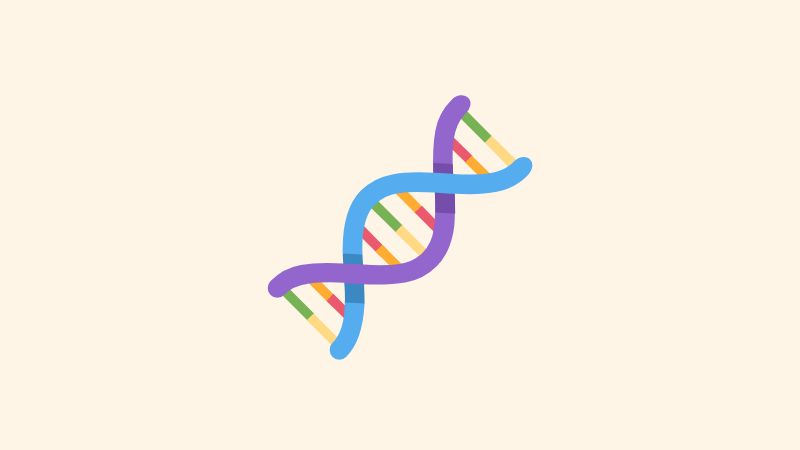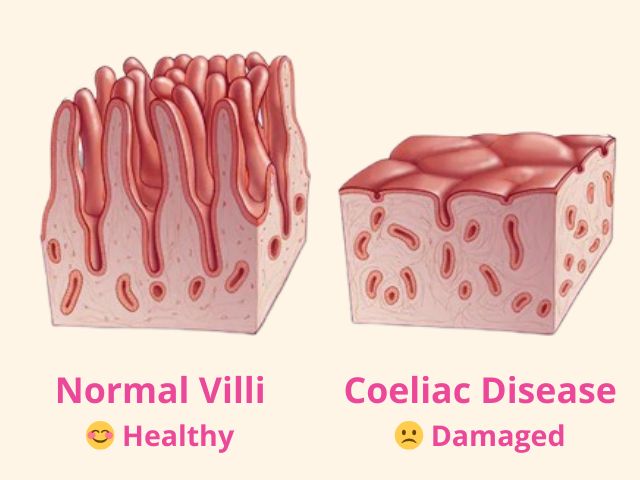Causes
What causes coeliac disease and who's at risk



Fast Facts:
⚡ Coeliac disease affects at least 1 in every 100 people in the UK
⚡ Experts believe this number is much higher, as many cases go undiagnosed or are misdiagnosed as other conditions such as IBS (irritable bowel syndrome)
⚡ Reported cases of coeliac disease are higher in women than in men
⚡ It can develop at any age
⚡ People with certain conditions have an increased risk of developing coeliac disease
⚡ First-degree relatives (parents, siblings, and children) of those with coeliac disease are also at higher risk
❓ What Causes Coeliac Disease?
Coeliac disease is an autoimmune condition where the immune system (the body's defence against infection) mistakenly attacks healthy tissue. In this case, the immune system reacts abnormally to gluten, a protein found in foods such as bread, pasta, cereals, and biscuits.
When someone with coeliac disease eats gluten, their immune system mistakenly identifies is as a threat. This triggers an immune response that damages the lining of the small intestine, causing inflammation and reducing the body’s ability to absorb nutrients from food.

The small intestine is lined with millions of tiny, finger-like projections called villi, which increase the surface area for nutrient absorption. In coeliac disease, inflammation flattens the villi, reducing their effectiveness. This damage leads to symptoms such as digestive issues, fatigue, and nutrient deficiencies.
👉🏽 You can read more about the symptoms of coeliac disease here.
🤷 So, Who Can Get It?
The exact cause of coeliac disease isn't fully understood, and it’s unclear why symptoms vary in severity from person to person. However, research suggests a combination of genetics and environmental factors plays a key role.
🧬 Genetic Factors & Family History
Coeliac disease often runs in families. If you have a first-degree relative (such as a parent or sibling) with the condition, your risk increases to approximately 10%.
- Identical twins - If one twin has coeliac disease, the other has around a 75% chance of developing it
- HLA-DQ genes - Coeliac disease is strongly linked to mutations in the HLA-DQ2 and HLA-DQ8 genes, which help regulate the immune system
Not everyone with these genes will develop coeliac disease, suggesting that other triggers, such as environmental factors, also play a part.
🫄 Environmental Triggers
Certain environmental factors may trigger coeliac disease in people who are genetically predisposed, including:
- Early childhood infections - Digestive system infections (e.g. rotavirus) may increase risk
- Introduction of gluten - Introducing gluten before 6 months or without breastfeeding may slightly raise risk (though findings are mixed and evidence is limited)
- Severe stress - Physical or emotional stress such as injury, surgery, bereavement, or major life events may contribute
- Pregnancy and childbirth - Hormonal and immune changes during pregnancy or the stress of childbirth may act as triggers
🩺 Other Health Conditions
People with coeliac disease are more likely to have other autoimmune or genetic conditions, including:
- Type 1 diabetes
- Thyroid disorders (e.g. Hashimoto’s or Graves’ disease)
- Down’s syndrome
- Turner syndrome
- Lupus
It’s unclear whether these conditions directly increase the risk or simply share underlying causes with coeliac disease.
🎯 Quick Recap
Coeliac disease is caused by an autoimmune reaction to gluten, which damages the small intestine and interferes with nutrient absorption. While genetics play a major role - especially in those with the HLA-DQ2/DQ8 genes - environmental factors such as infections, stress, and even pregnancy may trigger its onset. You're more likely to develop coeliac disease if you have certain medical conditions or a close family member with it. Early diagnosis is key to managing symptoms and avoiding complications.